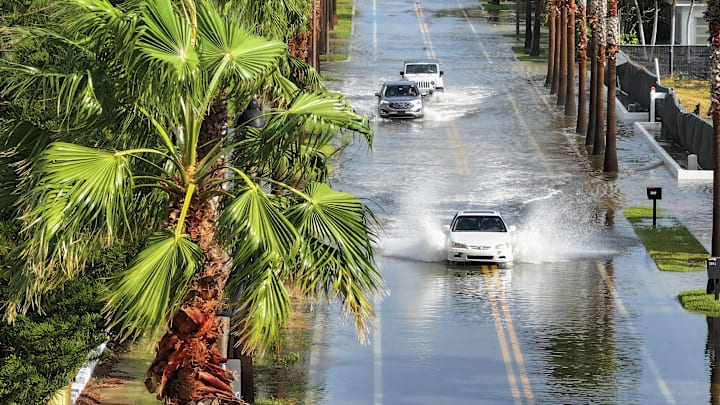Hurricane Helene, a powerful Category 4 storm, made landfall late Thursday night along Florida’s Big Bend coast.
With maximum sustained winds of 140 mph, the National Hurricane Center has labeled the storm as "catastrophic," warning of life-threatening conditions across the region. By 11:10 p.m., Helene officially made landfall, with hurricane-force winds (74 mph+) extending up to 60 miles from the storm's center.
Tropical-storm-force winds (39 mph+) were felt as far as 305 miles away. Tampa Bay is experiencing wind gusts up to 75 mph, and tropical storm warnings and storm surge alerts remain in effect.
A message for Eagles fans traveling to Tampa [from Philly]
While Hurricane Helene won’t directly hit Philadelphia, the storm is expected to cause flight delays and cancellations across the Mid-Atlantic and Northeast, including at Philadelphia International Airport (PHL).
Florida Governor Ron DeSantis did announce the temporary closure of several Florida airports, including Tampa International Airport, St. Pete-Clearwater International, and Tallahassee International.
In response, major airlines such as Delta, American, JetBlue, Spirit, Southwest, Frontier, and United have issued travel waivers, allowing passengers to rebook flights to affected destinations without penalties.
There's no danger of the Eagles vs. Buccaneers game being postponed, is it?
As of now, there’s no indication that the NFL or the teams will postpone or relocate the Eagles vs. Buccaneers game at Raymond James Stadium. However, it's worth noting that the stadium is one of four NFL venues designated by FEMA as a shelter during hurricanes or other natural disasters.
By the 1 p.m. Sunday kickoff, Hurricane Helene is expected to have moved hundreds of miles away from the Tampa Bay area. According to weather forecasts, there’s a 40% chance of rain during the game, with light winds expected.
The biggest concern may be the extreme humidity, as temperatures are expected to reach the mid-80s, with heat indexes climbing into the triple digits.
From the outside doesn’t look like there was any damage to Raymond James Stadium.
— rock riley (@realrockriley) September 27, 2024
Looks great!
Ready for #Bucs vs #Eagles Sunday.#WeAreTheKrewe #WeAreThe813 pic.twitter.com/qryWUDSee1
